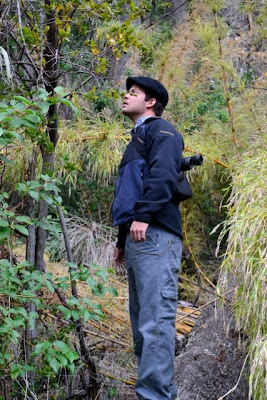Other greenhouse damaged
The remaining greenhouse has had many of its windows broken, apparently through hail or wind from the storms of April 27. There was no loss of human life. Below is a photo of that damage, which also shows the cleanup of the the first destroyed greenhouse.


 Classen lab graduate student
Classen lab graduate student